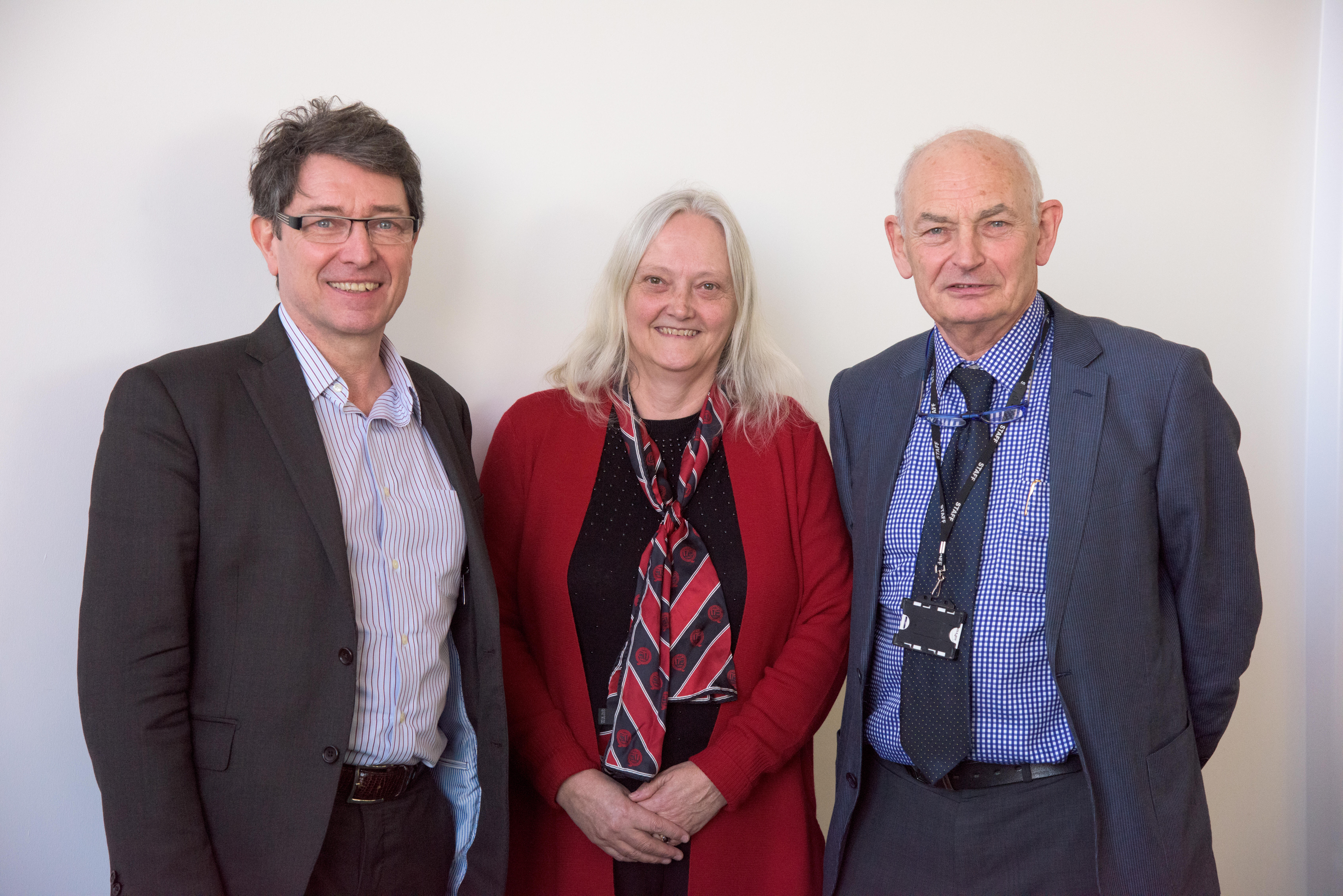
LSTM was host to Dr Dirk Engels, Director of the Department of Control of Neglected Tropical Diseases (NTDs) at the WHO. Over the two-day visit, Dr Dirk Engels met with LSTM Director Professor Janet Hemingway and various research and programme staff members involved in LSTM NTDs work.
Emeritus Professor David Molyneux, who is central in LSTM’s expanding NTD programme said: “We are pleased to welcome Dr Dirk Engels to LSTM and discuss with him the challenges that lie ahead for the global health community as we work towards alleviating the suffering of those affected by NTDs, diseases which affect many of the most disadvantaged people in the world.” Dr Dirk Engels said: “LSTM has a continuing interest in NTD research and programme implementation. I am delighted to have been invited to LSTM to meet with those involved in working towards reducing the burden of NTDs.”
To address the ongoing challenges around NTDs, LSTM utilises the breadth of its scientific research, from laboratory research to research uptake and implementation.
For more than a decade LSTM has been at the forefront of global NTD initiatives, beginning with the formation of the lymphatic filariasis support centre in 2000 by Professor Molyneux and continues today as the The Filarial Programmes Support Unit FPSU where the team supports NTD activities in 12 countries.
Recent LSTM NTD successes include the award of a $3.5 million supplementary grant from the Bill and Melinda Gates Foundation to the A·WOL programme for the continuation of the A·WOL Macrofilaricidal Drug Discovery & Development Programme. The success of LSTM NTDs is also reflected in the number of partnerships and consortia it supports. In particular, the COUNTDOWN consortium brings together researchers from many disciplines, a key focus of which is the social science aspect of NTDs and its link to health systems and poverty.